Israel Reveals Efforts By Iran To Recruit Terrorists In West Bank

Israel’s internal security agency has exposed attempts by Hezbollah and IRGC’s Quds Force to recruit Palestinians in the West Bank to conduct terrorist operations.

Israel’s internal security agency has exposed attempts by Hezbollah and IRGC’s Quds Force to recruit Palestinians in the West Bank to conduct terrorist operations.
The Shin Bet was quoted as saying that a Hezbollah terrorist cell was identified trying to smuggle weapons into Israel. The weapons were meant to assist different criminal and terrorists' activities in the country.
Tel-Aviv-based i24 website reported Monday that according to the information the Iranian and Hezbollah officials transferred funds to two brothers named Yosef Mansour and Marsil Mansour who were arrested in the West Bank in recent months.
Shin Bet says the operation is a serious attempt by the Islamic Republic and its affiliates to infiltrate and establish cells in Israel to carry out terrorist attacks against citizens.
Earlier in March, Israel’s National Security Council released a statement, cautioning Passover travelers over the possibility of being harmed in Iranian plots abroad.
This year, the holidays – starting on April 5 – coincided with the Muslim fasting month of Ramadan, which usually sees a surge in terrorist attacks by extremist Islamists.
Israel’s National Security Council claims that Tehran will continue its attempts to harm Israelis around the world, especially in the countries near Iran in broader West Asia. It emphasized that Iran and its proxies present a particular threat in the United Arab Emirates, Georgia, Azerbaijan, Turkey and Bahrain, as well as Iraq’s Kurdistan region, where Israelis are prohibited to enter according to Israel’s own laws.

President Ebrahim Raisi should resign over his government’s failure to deal with calamitously high inflation, an Iranian lawmaker has urged.
Mostafa Reza Hosseini Ghotbabadi said: “Unfortunately, there is no will on the part of Raisi’s government to curb inflation, and basically they are not able to handle the situation.”
Speaking on Monday, he added: “Secondly, the head of government and his first deputy do not have the necessary expertise to make the right decisions regarding inflation and economic issues.”
Inflation is currently running at about 50%, with disastrous effects on the economy and leaving families struggling to survive.
Conservative lawmaker Ghotbabadi, an Iraq-Iran war veteran, said that the two years since Raisi came to power had shown his administration is incapable of getting to grips with the out-of-control inflation rate.
He said: "With the current procedures and functioning of the government and officials, we have to wait for worse things to happen in the economy.
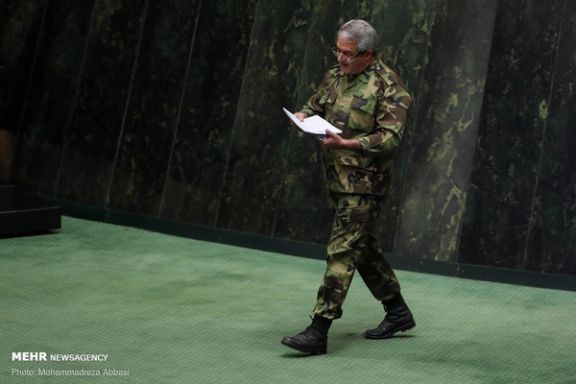
“Both government officials and MPs aligned with the administration ask us to give hope to the people and not tell them that the situation is bad, but we took an oath and according to the constitution we should speak up about the issues.”
He said that as soon as lawmakers warn about incompetent officials and ineffective management in projects and plans, hardliner supporters of the administration try to stop them via lawsuits and threats.
Ghotbabadi, a member of the parliamentary Industries and Mines Committee, said that the government has declined to cooperate with parliament since its early days in office. His remarks may seem surprising, given that many members of Iran's hardliner-dominated parliament are former members of the IRGC and would be expected to support the administration. But criticism of Raisi has been on the rise even among conservatives as the economic crisis worsens.
Echoing the Iraq-Iran war, when young volunteers walked through minefields to pave the way for other soldiers, the lawmaker said that if Raisi truly cares for the country, he should step on “the resignation mine” and step down along with his cabinet so that “a capable person with a strong team” could take charge.
Ghotbabadi said: “We are losing time and opportunities... We need a strong, powerful, wise and capable government.”
In July 2022, Ghotbabadi for the first time called on parliament to table a motion to unseat the President for incompetence, saying at the time that the Majles had been mulling the idea of Raisi's incompetence at least twice in recent months.
Earlier this month, Raisi replaced the head of the Planning and Budget Organization and the agriculture minister, after a year of calls by lawmakers and critics and amid skyrocketing inflation. The move came several days after Education Minister Yousef Nouri resigned following widespread discontent at a delay in the payment of salaries for teachers. However, pundits believe the changes are too little and too late.
On Monday, a motion to impeach Reza Fatemi Amin, minister of industry, mine and trade was registered at the parliament’s presidium after garnering 40 signatures.
However, the president seems unwilling to reshuffle the cabinet, according to statements he made during a meeting with a group of students on Sunday evening. This administration would not seek to replace managers unless it is absolutely necessary, Raisi said, adding that the government does not plan to make major changes in its roster.
The growing criticism of Raisi’s administration has gone far beyond the expected opponents of the regime to reach even media outlets affiliated with the Revolutionary Guard. IRGC’s mouthpiece Tasnim news -- which has been an adamant supporter of Raisi’s policies -- published an article on Sunday, questioning the government’s decision last year to eliminate food subsidies, saying that it boosted inflation.
Raisi’s administration moved to stop offering cheap dollars to importers of food and medicine in May 2022 to save more than $10 billion annually. Analysts say removing the indirect subsidy resulted in a massive hike in prices for most commodities including basic foods, medicine and medical equipment, animal feed and many other commodities.
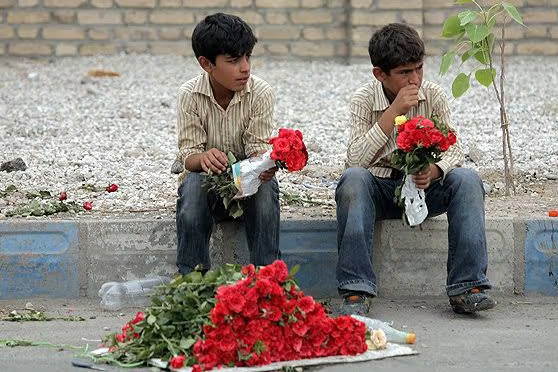
The Iranian regime has admitted that at least 120,000 minors are working as child labourers, although the real figure may be far higher.
An official at Iran’s Welfare Organization, Mohammad Reza Heydarhaie, revealed the figure of workers aged under 18 speaking to semi-official news agency ISNA on Monday.
Tens of thousands of children have had to drop out of school and try and scrimp a living to help their family survive amid the continuing economic crisis with sky-rocketing inflation of nearly 50 per cent.
Heydarhaie also admitted there has been a surge in the number of children living on garbage dumps.
Many also sell goods in the streets, clean cars or are exploited by adults as professional beggars.
Heydarhaie said: “According to the latest figures, there are a total of 120,000 minors in the country who are in child labor.”
He added: "Last year, 14,500 street children were identified, of which about 10,500 used the services of the welfare organization, and the rest did not want to receive such services."
It is believed that more than 5% of construction work in Iran is being done by children, despite the dangers.
Those employing children benefit from greater profits thanks to their lower wages.
Campaigners say that government institutions are not only reluctant to solve this problem, but are the main culprits.
Heydarhaie claimed it is against the interest of children for them to be forced off the streets by officials, saying: “It does not solve their problem,” and would put them out of reach of help from welfare organisations.
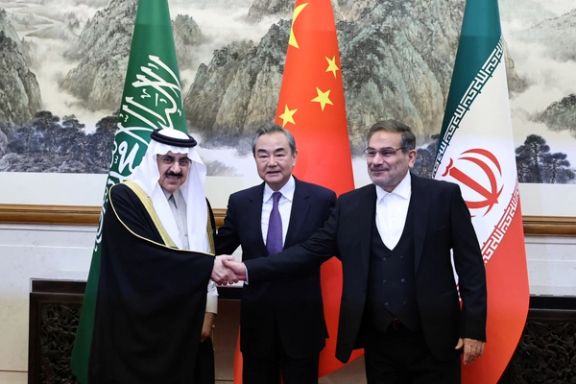
Iran said Monday it has officially invited Saudi Arabia's king for a visit, after the two countries agreed to restore relations in a China-brokered deal in March.
"Iranian President (Ebrahim Raisi) has sent an invitation to the Saudi king in return for an invitation by Riyadh for him," Nasser Kanaani, spokesman of Iran’s foreign ministry told a news conference.
After years of bad relations that fueled proxy conflicts across the Middle East, where Tehran and Riyadh backed opposite sides from Yemen to Syria, the Shi'ite revolutionary Iran and the Sunni-led Kingdom reached an agreement to end a seven-year diplomatic rift.
Technical delegations from both countries are preparing to officially reopen their missions, and Tehran said these missions would restart their activities by May 9, Iran's semi-official Tasnim News agency reported.
The Chinese brokered deal is seen as a sign of Beijing’s growing influence in the region at the expense of Washington that for decades has protected rich Arab oil exporters and tried to contain threats from the Islamic Republic of Iran.
Kanaani in his briefing claimed that the United States is no longer a superpower and “international circumstances have changed.” The era of “America as a superpower has come to an end,” he said and the Islamic Republic took advantage of the change, opting ‘for regional convergence to secure common interests.”
Analysts say that Saudi Arabia was interested to end the conflict in Yemen where for eight years it has been involved in a war against Iran-backed Houthis.
Iran in turn faces a serious economic crisis partly triggered by crippling US sanctions since 2018, when former President Donald Trump withdrew from the Obama-era JCPOA nuclear deal demanding tough concessions from Tehran.
The Biden administration launched indirect talks with Iran to revive the JCPOA, but after 18 months of negotiations the process reached a deadlock last September, leaving the sanctions in place.
Kanaani speaking about the nuclear issue Monday insisted that Tehran never left the negotiating table with the West. He maintained that Tehran is ready to continue talks based on a draft agreement that was presented by the European Union last August.
Iran has continued high-level uranium enrichment since early 2021 when it began talks to revive the JCPOA, and has amassed enough fissile material to reach the stage of weapons development in a few weeks, according to most estimates.
Meanwhile, there is an ongoing dispute with the International Atomic Energy Agency (IAEA) over Iran’s secret nuclear activities prior to 2003.
IAEA chief Rafael Grossi paid a visit to Tehran in early March, just before a meeting of the Agency’s board to iron out differences.
After his visit he claimed that an agreement was reached with Tehran to resolve differences and boost IAEA’s monitoring of Iran’s nuclear activities.
However, follow-up meetings announced by Grossi never took place and there has been no news of any progress.
The result of his trip was that IAEA’s board never censured Iran for its violation in its March meeting, in what appeared to be another diplomatic maneuver by Tehran to buy time.
Kanaani claimed Monday that contacts with IAEA continue, without providing any details. Grossi has been largely silent since his trip to Tehran.
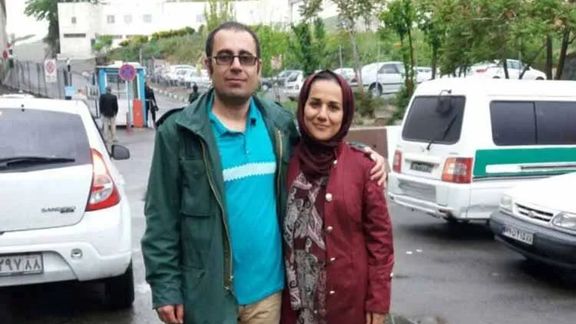
Fears are growing for Iranian Teachers Trade Association spokesperson Mohammed Habibi with no news on his whereabouts almost two weeks since his arrest.
His wife Khadijeh Pak-Zamir told Sharq daily on Sunday: “We have no information about his case and have not been notified of any charges. We have not been allowed to meet him and all this has made us worried about his health.
“I don't know if my husband is still in Ward 209 of Evin Prison, or if he has been transferred to another place or solitary confinement.”
Prisoners in Ward 209 are subject to torture by the Ministry of Intelligence, according to human rights campaigners.
Habibi is one of a number of activist teachers who have been targeted by the regime for protesting for political freedom and against economic hardship.
Hei was arrested on April 5 at the school where he teaches, just outside Tehran, less than two months since he had been released from prison.
In the arrest warrant, the human rights defender was charged with "gathering and collusion" and "propaganda against the government", his wife said.
He had been released from the notorious Evin prison on February 8 as part of a so-called general amnesty announced by the Iranian judiciary on the occasion of the 44th anniversary of the Islamic Revolution.
Habibi had twice lost his job teaching under the pretext of “unjustified leave of absence” while he was behind bars.
In August 2018 he was jailed for “collusion against national security”, and “propaganda against the regime” for his peaceful activities in the teachers’ association. He was released from prison in November 2020 but jailed again last year.
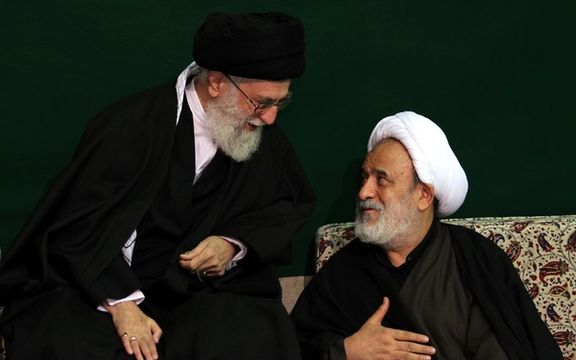
In an unprecedented move Hossein Ansarian an influential Iranian cleric harshly criticized the physical and psychological torture of political prisoners.
Speaking at a Ramadan-related religious ceremony last week, Ansarian whose remarks were being broadcast live on the Iranian state television told security officials: "If you have someone under arrest, do not lie to him about his imminent execution. Do not scare those who worship God."
Months of anti-regime protests and the insistence of hardliners to force hijab upon women, has led to a public debate in Iran, with some regime insiders condemning repressive policies.
The comment brought many reactions on social media, with some saying Ansarian is going his own separate way, while others pointed out that "he is now standing with the people." . Some of Iran's high-ranking clerics such as Ayatollah Abdollah Javadi Amoli also defended Ansarian.
Others posted comments by former Presidential Adviser Mohammad Ali Abtahi who recalled that when he was jailed in 2009, he was told by his interrogators that he was going to be executed the next morning.
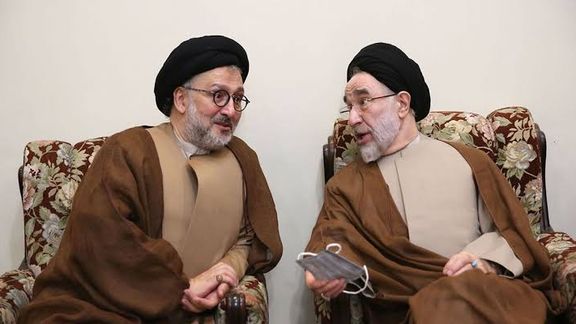
Responding to those who said Ansarian has disembarked from the train of the Islamic Revolution, Abtahi said that if Ansarian is not on the train, it must have been hijacked.
This comes while, IRGC general Esmail Kowsari, currently a member of the Iranian parliament, denied the accounts about threatening prisoners with execution, and said: "We do not have torture in Iran. Some people complain about being tortured as soon as they are deprived of sleeping for a few hours. We do not force confessions."
Ansarian who is known to be close to regime officials and has been often seen delivering religious speeches at Supreme Leader Ali Khamenei's house also talked about the hijab controversy and the regime’s harsh measures against women who defy compulsory hijab. He said he respected Iranian women and believed that 90 percent of them complied with the religious teachings about hijab.
Ansarian said: "If you want to arrest women for not observing hijab rules, come and arrest me instead." Furthermore, he called on Iranian security officials to respect prisoners, not to swear at them or humiliate them, not to beat them, and stressed that all of these behavior are strictly prohibited in Islam." He repeated, "They are haram."
Apart from Abtahi, many other former political prisoners in Iran have said that they had been subjected to mock executions as a tool of intimidation. According to Iran International, Sahand Mohammadzadeh, who was arrested during the protests last year, has said that interrogators pretended they were going to execute him. He said he was also tortured in other ways during his imprisonment which followed a seven-minute trial.
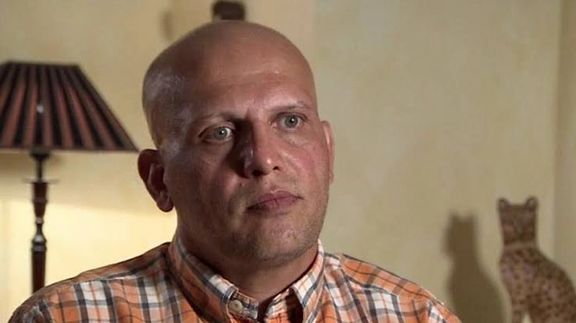
Another former prisoner, Maziar Ebrahimi who was jailed on the false charges of assassinating Iran's nuclear scientists in 2010s, revealed in 2019 in detail about having been tortured in Iranian prisons.
Following the November 2019 protests in Iran, Amnesty International listed mock executions among other forms of tortures used against Iranian political prisoners.
During recent days, other regime insiders including hardliner eulogist Mahmoud Karimi have said that authorities ordered him not to talk about religious stories that advocated compassion toward prisoners.
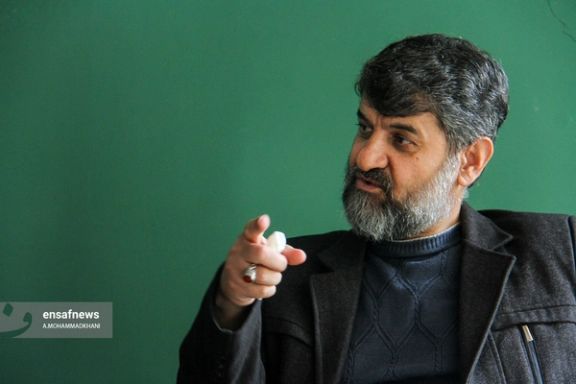
Meanwhile, Mehdi Nasiri, a former editor of the Kayhan newspaper has also openly spoken in criticism of Khamenei, blaming him for the country's problem. Sedigheh Vasmaghi, a female jurisconsult has also warned Khamenei that he would be responsible for dividing Iranians over the issue of hijab.
According to Iran International, as more regime insiders begin to speak about the problems in the core of the regime, this can give way to the assumption that the crisis in the core of the regime has become so obvious that could be concealed.